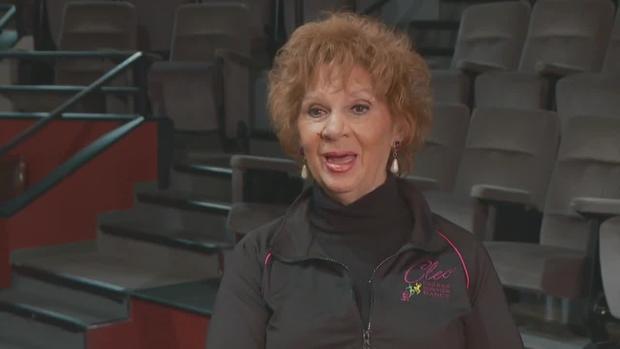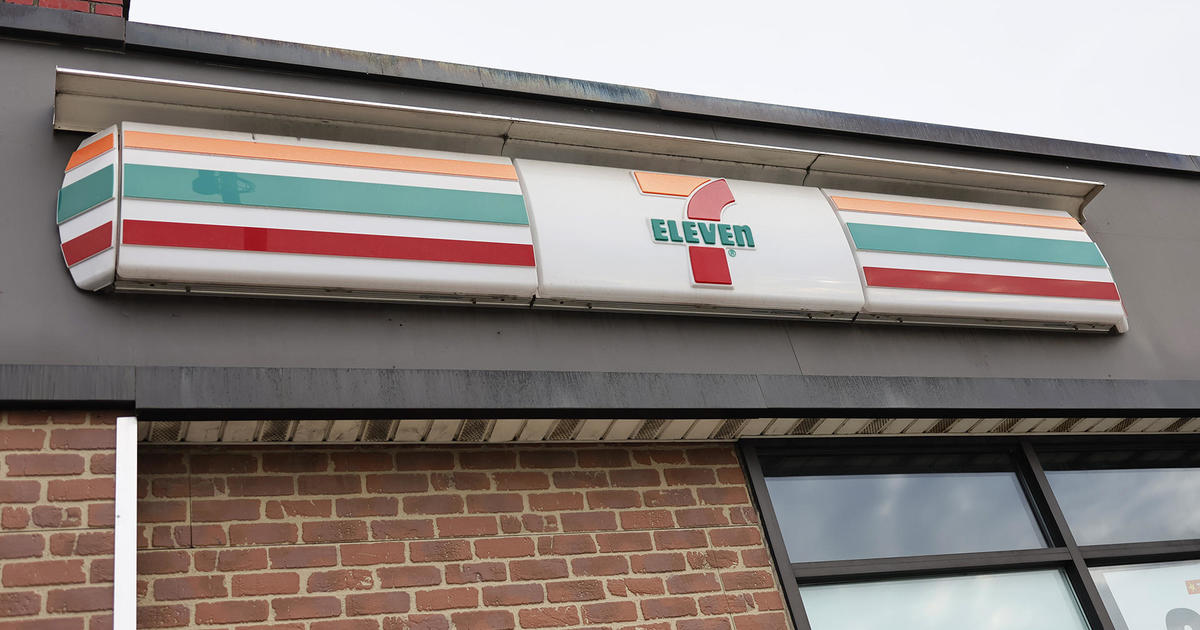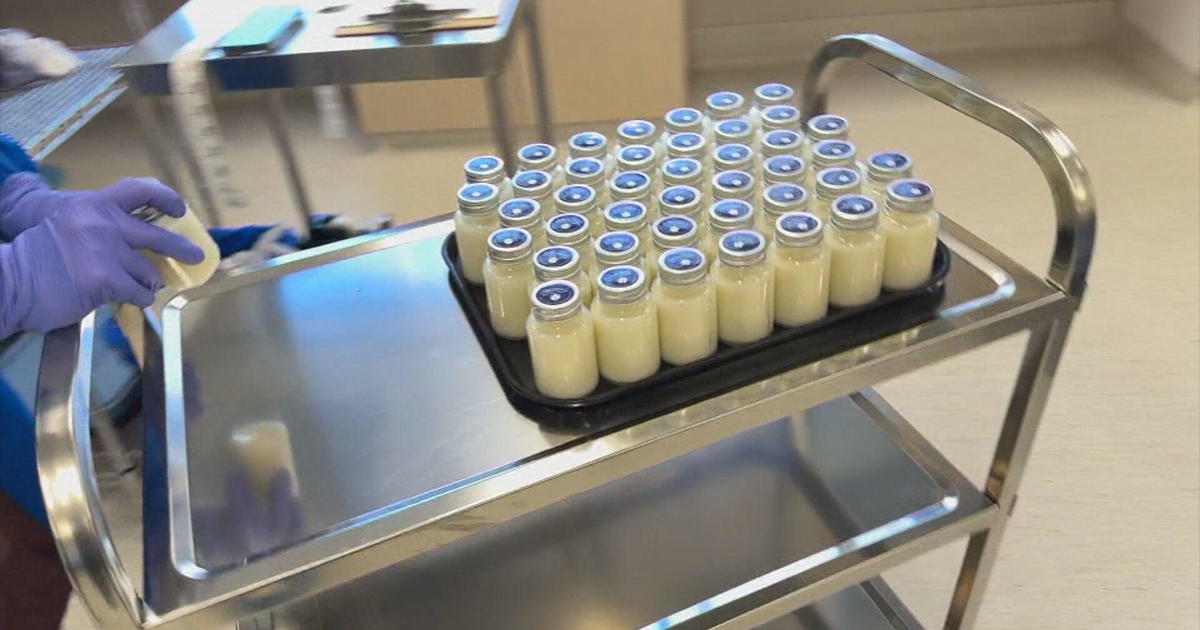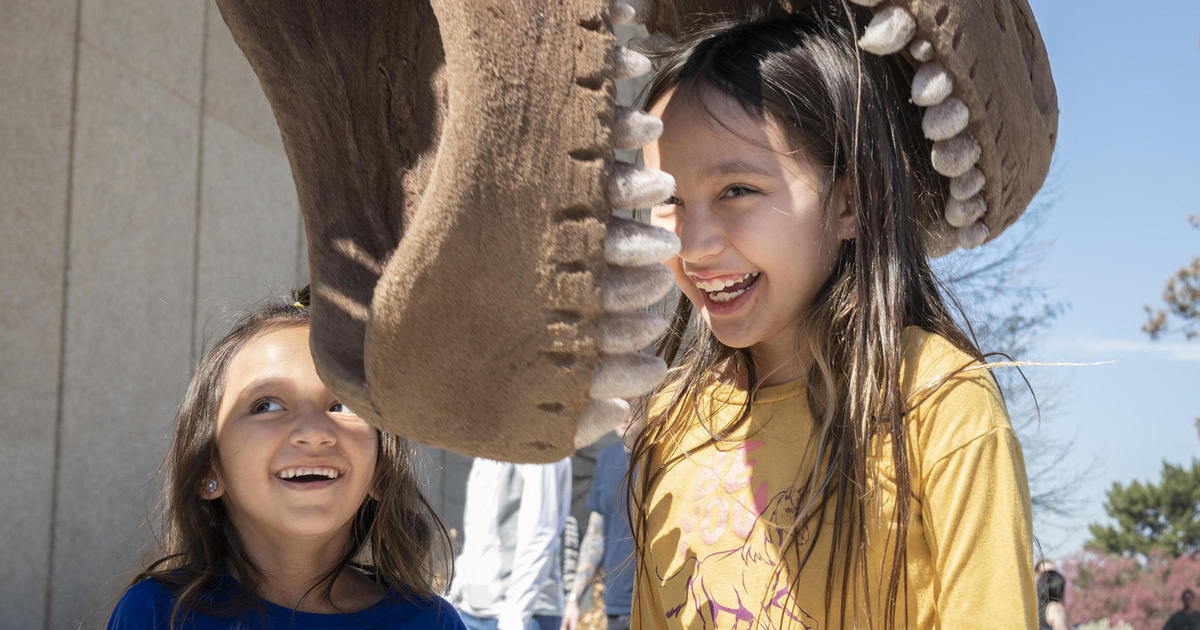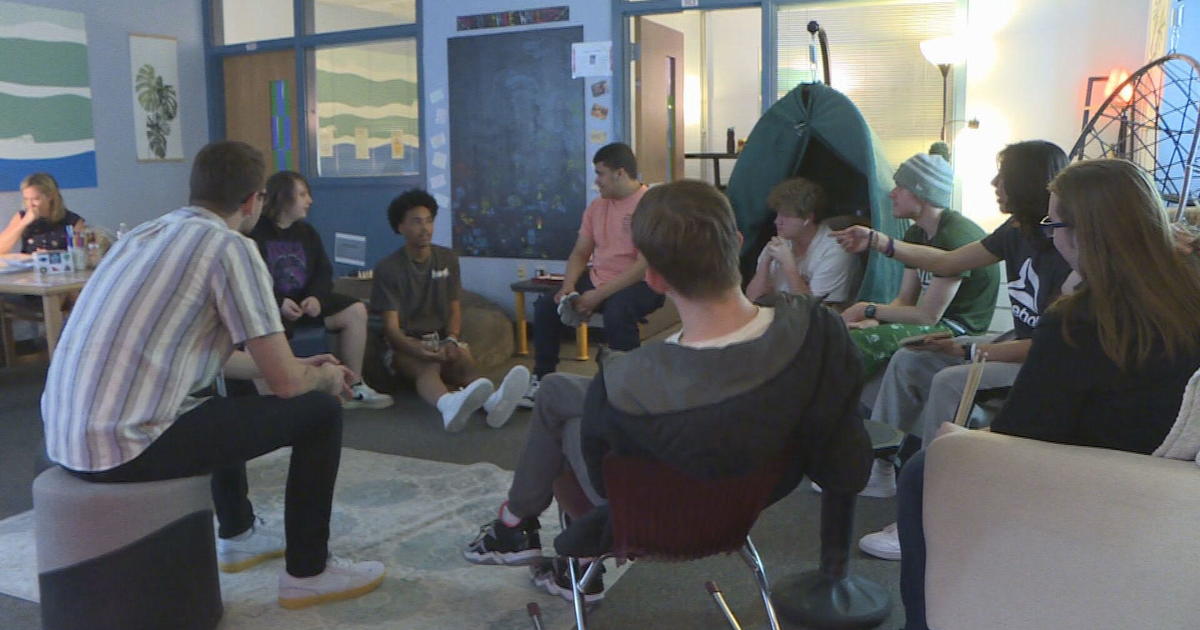Coronavirus Outbreak: Lack Of Ticket Sales Really Hurting Colorado Arts Organizations
DENVER (CBS4) - The COVID-19 pandemic has closed many arts venues and canceled scheduled events in Colorado, forcing nonprofit organizations to lose revenue that funds their programs all year. A portion of sales tax revenue helps the Scientific and Cultural Facilities District generate millions of dollars for those organizations, but with spending down they may not receive the same amount of support in 2020.
"There would be so much going on on this stage and it has been quite surreal not having anything," said Cleo Parker Robinson. "So much was going on and now it's like it's a little ghost town.
As the founder and artistic director of Cleo Parker Robinson Dance, she was so excited at the beginning of the year to celebrate their 50th anniversary. She remembers the concern about coronavirus increasing last month just as Gov. Jared Polis was on the stage at the theater in Denver's Five Points neighborhood to sign the Crown Act, anti-discrimination legislation based on hairstyle. This month she spoke to CBS4 on that same stage, which has sadly not seen much activity since then.
"It's been a challenge," she said about the absence of performances and rehearsals.
Like so many nonprofit organizations, Cleo Parker Robinson Dance has moved to online operations and is trying as best as it can.
"How do we get to our bodies without touching, that's a new dance for us," Parker Robinson said.
CPRD is one of 300 organizations funded by the SCFD. The economic impact of COVID-19 will likely reduce the sales tax revenue that SCFD uses to support these cultural contributors across seven counties in the Denver metro area.
"SCFD knows that we have a very strong group of organizations. They're nimble, they're smart but they need support from the community," said Deborah Jordy, executive director of SCFD.
For every $10 spent, $.01 goes to SCFD. The recipients range from arts, cultural and scientific entities that can be small to large, either volunteer-based or multi-million dollar budgets. In 2018, $62.2 million went to 288 organizations.
"What the public can do is what they're doing, it's small gestures of kindness," she told CBS4 in a video conference call.
SCFD is encouraging organizations to look at Small Business Association loans available to groups with under 500 employees. The money could help keep a nonprofit going while their income is reduced. The money SCFD gives out usually comes two months after the Department of Revenue collects it from sales tax, so the loss because of the coronavirus outbreak is not fully known yet.
"The impact of the pandemic on the arts community has been unlike anything we have seen before," said Gary Steuer, president and CEO of the Bonfils-Stanton Foundation. "Nothing compares to what's happening now."
Steuer says the arts community is hurting in a way that surpasses the 2008 recession, Hurricane Katrina in New Orleans and 9/11. While organizations have shifted programming online, many are dependent on earned income from ticket sales and tuition that cannot be matched. These groups are often thinly capitalized and do not have the reserves needed. Even with an endowment, there are restrictions that may not allow those funds to be used in this crisis.
"You have essentially a complete shutdown of the very lifeblood of what the arts are all about, which is bringing people together."
One challenge is the timing of the pandemic. Some organizations have completed their season while others may have canceled events in the middle of their schedule as well as lost fundraising dollars from gala dinners. One of those evenings alone can bring in 10 to 20 percent of the income needed in a year.
The impact is greater for groups like Swallow Hill, which makes more of its revenue from earned income. The concert organizer and music school can't receive the money ticket sales and classes would normally generate. The foundation does support Swallow Hill, but it usually stands out for its ability to receive 80 percent of its income on its own.
"The longer this goes on, the more of a crisis it will be in terms of the very survival of our cultural sector," he said.
Steuer says the foundation realized it needed to operate differently to support the community. It waved its usual application process with guidelines and board approval. It has already promised an additional 10 percent of emergency funding to each of its current grantees. The Foundation must give 5 percent of its principal each year to operate as a nonprofit, and it plans to donate more in 2020. It will also accelerate its 2021 funding program and gear it toward arts relief.
RELATED: Latest Updates On The Coronavirus Outbreak In Colorado
Not every organization will survive if the closures and cancellations that began in March continue into June and July. Steuer says that the arts community will have to think like medical staff, deciding who can be saved. He said Cleo Parker Robinson Dance is one group essential to the Colorado cultural scene, which still hopes to celebrate its golden anniversary this year.
"Without that funding, it's tragic actually because I think we can't reach every community in a creative way," Parker Robinson said about the impact of SCFD.
The money from the district helped Cleo Parker Robinson Dance go into 80 schools to teach dance as well as local recreation centers. The organization can also collaborate with other SCFD beneficiaries like the Denver Museum of Nature & Science as well as the Denver Zoo.
"The arts are the same way, we have to feed their souls, we have to feed their spirits," Parker Robinson said. "That connection of mind, body, spirit, has to be fed, if we don't feed it, we're in trouble."
CPRD planned to host Dance USA, a national conference in June, but has canceled it because of COVID-19 concerns. They will still try to create a virtual experience for the event.
Jordy says organizations have to move online to remain visible and engage their audience as best as they can. SCFD already knows 27 of its organizations have less than a month of reserves and 173 have three months of those funds.
"People will begin to realize that art does feed their soul, and they need food on their table first and they need their families healthy," Jordy said.
She encourages all who can to donate to these groups. Leaders in the arts community say there needs to be a balance in supporting both individual artists and the organization they work with throughout the year.
Those working in this field have often been hit hard twice, losing work in the creative space and the service industries that help them to cover their regular expenses. The arts also generate income for other businesses. Hotels, restaurants and transportation all benefit from people experiencing events and visiting venues.
"Arts and culture gives you a break," Jordy said. "It gives you a moment to reflect in beauty or in solace."
A sentiment shared by Parker Robinson, who said she once wanted to become a doctor and she believes the arts help her provide the healing people need. For now, she is looking at all options for funding, including SBA loans. Robinson explained that the arts community needs to demonstrate how it already operates like a business.
"Just because we engage people in a creative way doesn't mean it's not business," she said. "We've had to change the way people think about art, because it is a business."
The move online has been a new endeavor for Robinson, who remains cautious of the internet. She says there are free classes on Instagram and donations are funding the teachers who lead formal instruction virtually -- they are working more hours than before.
"We've been Zoomin', Zoomin', Zoomin,'" she said. "That's the one way, I've never used the internet like that."
It is challenging the organization in a new way to become more innovative and creative in its 50th year. Her dance company is also rehearsing online.
"We never kept anyone away," she said. "We don't want anyone to feel as though they can't partake."
Plans for their annual gala in August are uncertain but she hopes that Denver can still show its presence with the virtual version of Dance USA this year, a group she helped to start. They are also in the middle of captain fundraising campaign to expand their facilities in Five Points. All steps to maintain the original mission of Cleo Parker Robinson Dance.
"We dreamed and so now we have to dream differently," she said. "That will give us a place to re-enter and rebuild but I don't think it will be the same."
As a grandmother, she thinks about the impact of young children. She knows everyone must engage them differently not knowing how that generation will remember this time. But she's encouraged that if everyone is united they will overcome the adversity created by the pandemic.
"Let's be good to each other," she said. "Soon we'll be in another place and we'll be in another place together."
